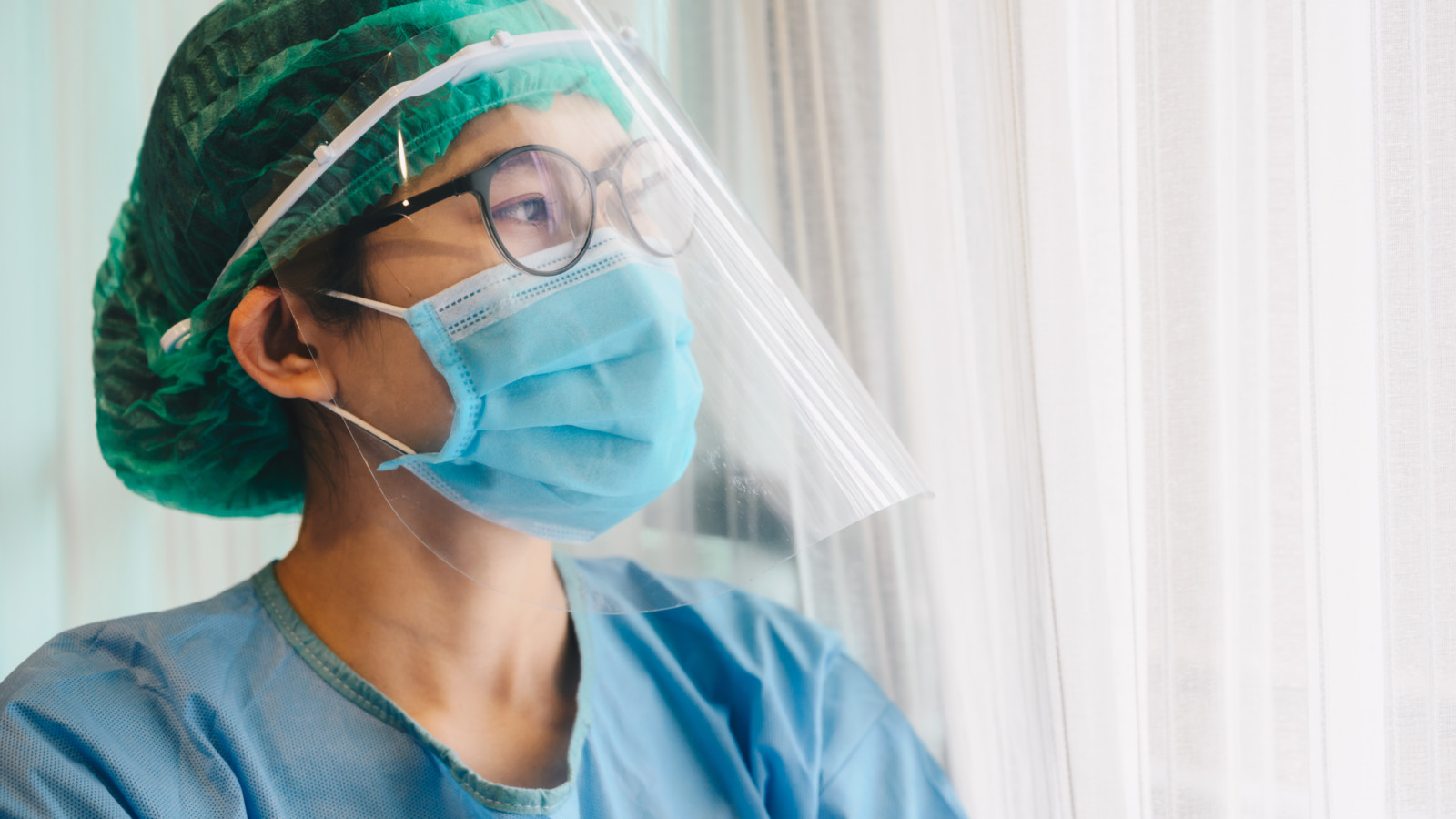I remember the days leading up to the end of medical school, a whirlwind of interviews faced with the excitement of a new phase of my life. Yet this was simultaneously a time laced with melancholy in the setting of my impending departure from my friends and my comfortable student status. Within a mere couple months I would be facing the responsibilities accompanied with the letters that would be added to the end of my name: M.D. The excitement of the end of the academic year was evident, but the severity of a new coronavirus brewed stronger. Soon that was the topic of conversation accompanying every phone call, discussion, and interaction. And as it brewed, I was entering my rotation as a fourth year medical student in the intensive care unit.
I was excited for this experience. I had a picture in my mind about the intensity of the environment. The discussion of complex physiology and illness. The attention respected to each patient. I was bracing myself for the mental challenges of death and dying, and praying for the reward of caring for a patient into recovery. My mind was preparing to see families alongside their ill loved ones holding their hands, and comforting them in ways we as staff could not.
What I faced when I first entered the I.C.U. was the intensity I expected involved with complex illness, but with an air of tenderness involved with complex patient care. I spoke with mothers, fathers, and siblings. I explained a father’s successful extubation to his son. I watched a nurse wheel her harp beside a patient’s door to play soothing music as he lay recovering in bed. It was the experience I had craved and prepared myself for.
One day a patient arrived with shortness of breath and respiratory failure requiring intubation. A COVID test was now available in our facility, but understanding of symptoms and disease was still premature. On his third day of our care, a thought that had yet to cross our minds was vocalized by our attending. “You see this CT finding? It coincides with a finding seen with COVID-19.” The patient was screened and was thankfully negative. We were sent home. Shortly after that day medical students were excused from hospital rotations. I returned occasionally in the coming months to the hospital. The medical school was closed and transitioned to remote learning.
I left the hospital I.C.U. as a fourth year medical student as the country was entering an unprecedented era of COVID. I returned to the hospital as a first year resident, once again into the I.C.U. Immediately, I knew this was different. The level of responsibility was different from that I had as a medical student. This change I expected, although still anxious about. The I.C.U. I left, filled with families, recovering patients, hands of the intubated held in the hands of their loved ones, a daily rush with constant changes in patient needs, was lost. The I.C.U. I found myself in was silent, filled only with beeping of drips and I.V.s and the buzz of ventilators. The chatter was minimal, and the families absent. The visible commotion of the I.C.U. was replaced with a quiet commotion filled with uncertainty and discussion about how best to care for the COVID patients who filled the I.C.U. What’s proven to work? We didn’t know for certain. What protocols do we have? Do what we can to help patients heal.
Within hours I realized that the chances of me learning the system of a normal I.C.U. anytime soon was lost. What it was in was not the norm I had known. Silence in a room can be seen as peaceful when replacing loud chatter. I worked in the I.C.U. my first week fearing that the silence that haunted it was going to be the new norm. I prepared myself to handle death and watch patients recover. But here I was in an I.C.U. where patients didn’t quickly move in and out. I saw patients stay. They neither recovered quickly nor died quickly. Little changed day to day. And on the occasion, when a patient would leave, whether that be with the company of tears of joy or sadness, another patient afflicted with the same illness would take his or her place. Day-to-day business continued on with the stress faced by the sheer quantity of patients.
Months later, as the hospital faced the holidays, the tease of improvement and respite from COVID-19 ended. Once again, the hospital was full. Once again, we were faced with the onslaught of patients and COVID-19. However, after six months as an intern, I was different and the story playing before me seemed worse. The silence I felt before was replaced with the sound of fire after fire as the I.C.U. was full this time with both COVID patients and non-patients. Yet still no families to break the gloom of lonely patients and tired doctors.
Thanksgiving passed and as Christmas approached, the buzz of a vaccine resonated through the halls, giving me something to look forward to. In my hopeful daze I lifted the vaccine up onto the highest pedestal, as the holy grail and the solution out of this current way of life. The day I received my COVID vaccination was the day I was told that the hospital was over capacity and worsening. Something I was looking forward to, and that filled me with so much hope, instantaneously became overshadowed by the grim reality I saw developing around me. The reality was I was vaccinated, but COVID was not nearly close to over yet. The beginning of this year being called a hero was a label of praise. Looking at the staff around me I can’t help but wonder if it has become a label of burden.


